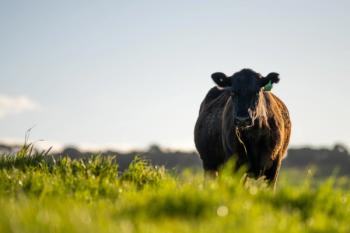
Donkey treated for oleander poisoning
Large Animal Clinic at UC Davis nurses Lily the 11-year-old donkey back to health
The University of California (UC) Davis School of Veterinary Medicine recently treated an 11-year-old female donkey named Lily, who suffered from oleander poisoning, as reported in a university release.1
The donkey’s owner, Judy Croy, realized something was off when a few months ago her once excellent appetite was gone, and she wasn’t eating anything. “She lets me know that when I come outside, I have a purpose – to feed her,” Croy joked. Croy owns 5 donkeys, and had a bad feeling about the situation, so remained with Lily for a few hours. “Her behavior was so abnormal,” said Croy, who suspected it may be colic.
Lily’s primary veterinarian prescribed a common pain killer and anti-inflammatory medication later that evening and by morning, Lily’s condition remained the same. An examination displayed an elevated heartrate, and the veterinarian didn’t think it was presenting like colic. She suspected poisoning instead, and Lily was transported to the Large Animal Clinic at the UC Davis veterinary hospital. “When we arrived at Davis, the entire emergency team was waiting and helped us get her off the trailer immediately,” recounted Croy.
Faculty equine medicine specialist Fiona Wensley, BVM&S, MRCVS, DACVIM, and Mallory Lehman, DVM, a resident with the Equine Internal Medicine Service, led the case, and the team began a series of tests to identify what was causing Lily’s symptoms.
“Donkeys are very stoic animals and don’t tend to show disease until they are very sick,” shared Lehman, in the release.1 “We are so fortunate that her veterinarian recognized her signs quickly and recommended referral, as I think the quick referral made a huge difference in Lily’s outcome. Lily was an exceptionally nice donkey to work on – which may speak to how bad she felt initially but continued throughout her stay. Considering her history and elevated heart rate when she got to us, we knew we needed to do some further testing quickly to find the cause of her fairly non-specific signs.”
Tests showed elevated kidney values consistent with acute kidney injury, a common side effect of poisoning. Also Lily’s triglycerides were mildly elevated, which is consistent with her not eating properly before presentation. The most concerning, though, was her level of cardiac troponin, an indicator of heart muscle damage. Her initial concentration of troponin was 41 ng/ml, while a normal level in a horse is less than 0.07 ng/ml, so her care team immediately ordered a cardiac ultrasound, which displayed a mild amount of fluid buildup around her heart and mildly thickened heart muscle walls.1 With a blood test, the ream revealed a toxic concentration of oleandrin as Lily had eaten oleander, a highly poisonous plant.
Oleander is a common ornamental plant found in California in both home gardens and in commercial areas. All parts of the plant are toxic to both animals and people. The dried leaves can even pose a threat to to animals which may find them palatable. Ingestion can cause diarrhea, heart arrhythmia, kidney disease, and even sudden death.
Lily was hospitalized for 6 days while recovering with supportive care, nutritional care, and anti-arrhythmic medications. She was also given activated charcoal and IV lipid emulsion therapy to bind the toxins in her system. She wore a continuous ECG monitor while in hospital for continual monitoring of heart rate and rhythm. Lily responded well to treatment, and her heart and kidney values went back to normal by the time she was discharged. Her heart arrhythmia resolved well, but she was prescribed medication for at-home management while her heart continues to heal.
Lily was brought home where Croy further nursed her back to health with the help of her other donkeys. She claims their ability to calm each other and lower stress levels has helped in Lily’s recovery. Her 5 donkeys were all abused or “untouchable” before she rescued them, and they are now a bonded herd. A follow-up visit by their primary veterinarian demonstrated normal heart rhythm and that Lily was recovering well.
“Donkeys are so misunderstood,” said Croy. “Everybody thinks, ‘I’d love to have a donkey – they’re just horses with long ears.’ Nothing could be further from the truth. I’ve had horses since before I was a teenager, and I had to forget everything I knew (about horses) and start over (with donkeys) because they learn differently, they respond differently – they’re just not a horse. These donkeys have been an amazing journey for me.”
Lily has made a full recovery, and she is doing well with the rest of her herd.
Reference
Warren R. Donkey saved after oleander poisoning. News release. UC Davis School of Veterinary Medicine. February 24, 2023. Accessed March 3, 2023. https://www.vetmed.ucdavis.edu/news/donkey-saved-after-oleander-poisoning
Newsletter
From exam room tips to practice management insights, get trusted veterinary news delivered straight to your inbox—subscribe to dvm360.





